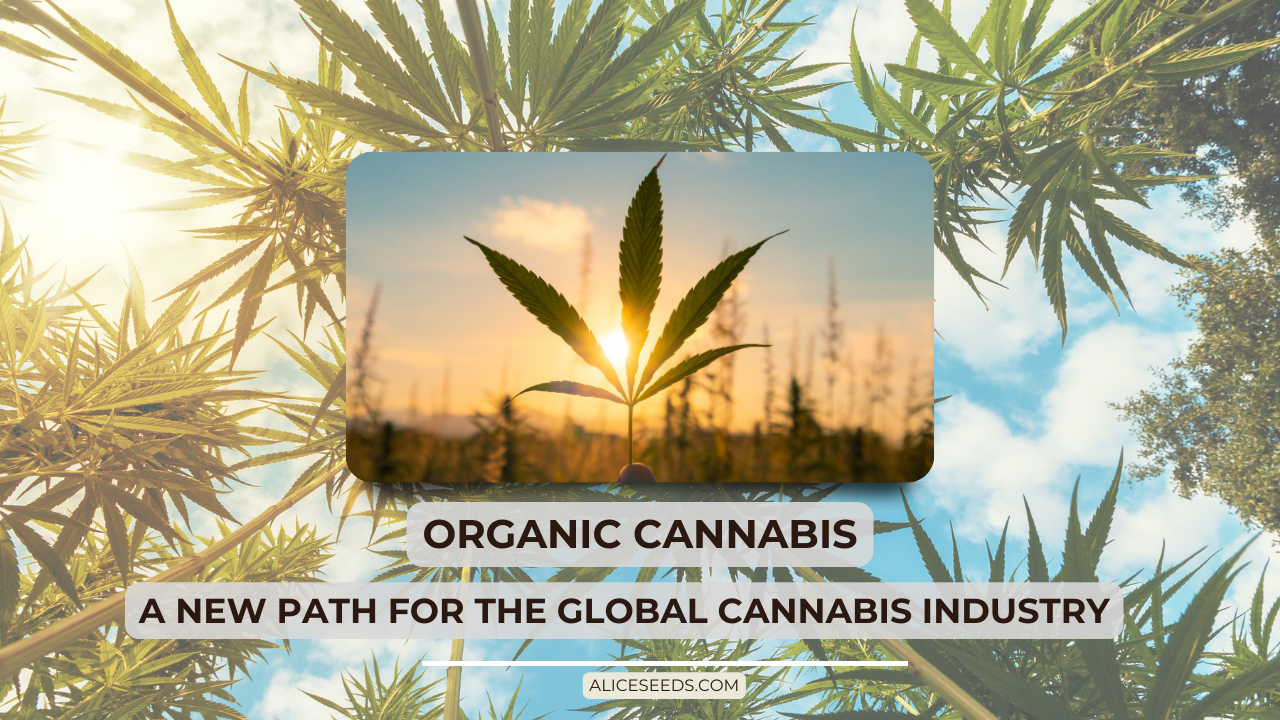With the wave of cannabis legalization spreading across the world, there are more and more cannabis-based products, therefore, consumers have higher demand for clean and safe products. Organic cannabis cultivation holds the promise of becoming a future trend due to its superior benefits and excellent quality.

What is organic cannabis?
Organic cannabis refers to cannabis cultivated through organic methods. Instead of using synthetic fertilizers, the plants are grown in a mixture of natural and organic materials, such as coconut coir, compost, worm castings, manure and more. The essence of organic cultivation is to recreate a natural environment, allowing plants to thrive in a way that has evolved over millions of years, resulting in robust growth and safer for consumers.

In recent years, many cannabis cultivators have shifted from synthetic fertilizers to organic fertilizers. Even experienced, commercial growers with decades of experience have decided to change due to the following benefits.
5 benefits of organic cannabis cultivation
1. Improved quality
Organic cannabis is known for having superior flavor and medicinal properties compared to inorganic cannabis. While conventional cultivation focuses on maximizing yields by providing plants with necessary nutrients, organic cultivation improves the activity of microorganisms in the soil and it can enhance biodiversity, allowing plants to reach their full potential with better flavors, aroma and potency.
2. Simple, easy to do
In conventional cultivation, we have to spend a lot of time on mixing bottled nutrients at different growth stages, as well as measure pH, EC so that plants are able to absorb the nutrients. Furthermore, nutrient burn and deficiency represent the most common problem for beginners, resulting in a significant slowdown in plant growth and a decrease in overall yields. In contrast, organic cultivation mainly involves regular watering, as the plants decide what, how much, and when to consume nutrients from the soil.
3. Enhanced plant resistance to pests and diseases
Organic soil is not only nutrient-rich but also host a vast microorganism population. These microorganisms establish a symbiotic relationship with the plants, safeguarding them from harmful species and boosting plant immunity. Dealing with pests and diseases is a major concern for cannabis cultivators, and organic cultivation provides better resilience against these issues compared to conventional methods. This is because conventional methods create an artificial environment that hampers the plants' natural ability to resist diseases.
4. Cost savings
Organic cultivation allows for the reuse of soil mixtures, eliminating the need to purchase expensive synthetic fertilizers after each harvest. In conventional methods, growers often have to flush the growing medium to avoid salt build up, leading to nutrient wastage. Organic cultivation, on the other hand, ensures that unused nutrients remain in the soil, which can be further enriched with additional organic fertilizers for subsequent crops. This sustainable approach leads to cost savings over time.
5. Safer, healthier for consumers
This is the most significant advantage of organic cannabis cultivation. Cannabis is an herb that should contribute to human health. Synthetic fertilizers and chemical pesticides have long been identified as major contributors to cancer, so how can we use them for medical purposes? Organic cannabis is cultivated using natural and organic materials, which ensures its compatibility with the human body. Just like organic foods, organic cannabis is becoming popular worldwide.
Currently, organic cannabis is considered a premium product in the cannabis industry and is in high demand everywhere. However, the supply of organic cannabis is not enough to meet the market's demands. Organic cannabis is gradually becoming a trend in countries where it has been legalized and is poised to expand globally. We can hope that one day, organic cultivation will become the standard for all cannabis-based products, contributing to a cleaner and safer world.
With its higher quality, potency and safer compared to inorganic cannabis, which type of cannabis would you choose?"

